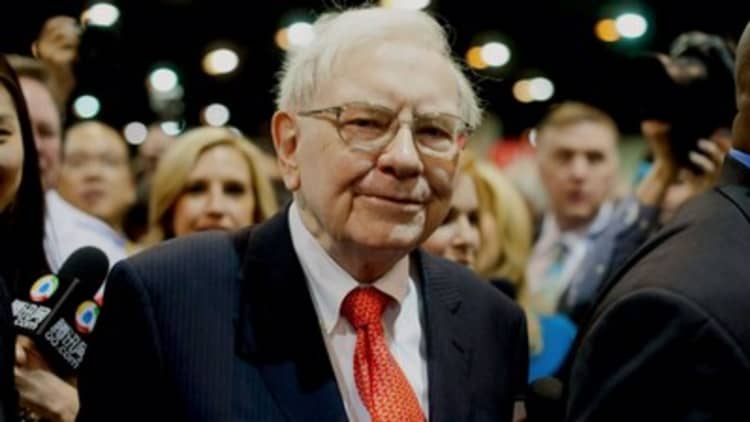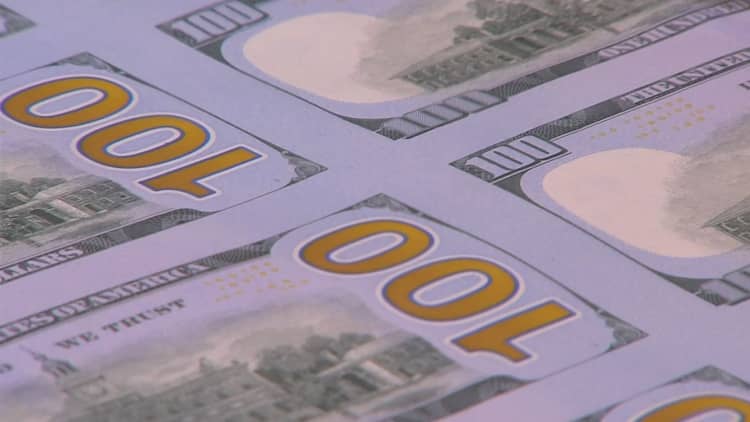The power and greed of billionaires in the United States is threatening the country.
So says Bernie Sanders, the 77-year-old senator from Vermont who tried unsuccessfully to win the Democratic presidential nomination in 2016.
"We live in a nation owned and controlled by a small number of multi-billionaires whose greed, incredible greed, insatiable greed, is having an unbelievably negative impact on the fabric of our entire country," Sanders told Paul Jay, CEO and senior editor of The Real News Network, in an interview posted Thursday.
Sanders, who has become a political figurehead for the liberal end of the Democratic Party, said billionaires and their greed are to blame for any number of social problems in the United States.
"When we deal with climate change, when we deal with the economy, when we deal with housing, when we deal with criminal justice or immigration issues, we have got to deal with those in a holistic way, and understand why all of that is happening. Not see them as silo-ized separate issues," Sanders said. "A lot of that has to do" with the pervasive power of the ultra rich in this country, he said.
It is the responsibility of America to look at the extreme gap between the rich and the poor, Sanders said.
"What you have here is, first of all, massive income and wealth inequality. And as a nation we have got to think from a moral perspective and an economic perspective whether we think it is appropriate that three people, one, two, three, own more wealth than the bottom half of the American society," Sanders said. (A November 2017 report published by the progressive think tank Institute for Policy Studies found that Bill Gates, Jeff Bezos and Warren Buffett collectively had more wealth than the 160 million poorest Americans, or half the population of the United States.)
"You know, that's really quite outrageous, and it's appropriate that we take a hard look at that," Sanders said.
The disparity Sanders refers to is getting worse. A report released in July from the nonprofit, nonpartisan think tank Economic Policy Institute shows that income inequality has increased in every US state since the 1970s. A family in the top 1 percent of families in the United States in 2015 (the most current data available) was bringing in 26.3 times as much income as a family in the bottom 99 percent, according to the report.
"While the degree of income inequality differs across the country, the underlying forces are clear. It's the result of intentional policy decisions to shift bargaining power away from working people and towards the top 1 percent," said Mark Price, an economist at the Keystone Research Center in Harrisburg, Penn., in a written statement released with the report. "To reverse this, we should enact policies that boost workers' ability to bargain for higher wages, rein in the salaries of CEOs and the financial sector, and implement a progressive tax system."
The influence wielded by the ultra-wealthy is visible in politics and the media, according to Sanders.
"They don't put their wealth under neath their mattresses, right. They use that wealth to perpetrate, perpetuate their power. And they do that politically," Sanders said. "So you have the Koch brothers and a handful of billionaires who pour hundreds of millions of dollars into elections, because their Supreme Court gutted the campaign finance laws that were in existence, and now allow billionaires quite openly to buy elections."
Charles and David Koch are each worth more than $48 billion, according to Forbes. Their wealth comes from their family business, Koch Industries, the second largest private company in the United States, according to Forbes. Though their PAC does reportedly spend hundreds of millions on elections, that includes funds raised by a network of about 300 donors, according to The Washington Post.

Still, "Their influence as political financiers and political organizers cannot be discounted," Robert Maguire, a political nonprofits investigator at the Center for Responsive Politics told The Washington Post in 2015. "[T]he brothers — and the members of their donor network — have an outsized influence on the who gets nominated for our country's highest offices. Most GOP presidential hopefuls, for example, have auditioned for Koch seal of approval at their donor retreats."
As for the media, the richest person in the world, Amazon CEO Jeff Bezos, owns The Washington Post and Salesforce CEO and billionaire Marc Benioff recently bought Time.
"If I am a billionaire, it is likely that I will have control over media, as well," Sanders said. "So you have a handful of media conglomerates owned by some of the wealthiest people in this country and in the world determining what the news is; what is appropriate for the American people to discuss and not to discuss."
However, both Bezos and Benioff say they are not involved in daily coverage at their respective publications, and Bezos has said his purchase of The Washington Post was not politically motivated.
Despite all this, Sanders said he is encouraged by the youth and diversity of many of the incoming Congressional leaders.
For example, there will be at least 102 women in the House of Representatives in 2019, which is the largest in history, according to The New York Times. Also, Alexandria Ocasio-Cortez, 29, from New York, became the youngest woman ever elected to Congress (she unseated a middle-aged white man who had previously served 10 terms).
Sanders said his vision for America is simple: "[W]e have got to have the guts to take on Wall Street, take on the pharmaceutical industry, take on the insurance industry, take on the 1 percent, create an economy that works for all. And while we do that, we bring our people, and that is black and white and Latino and Native American and Asian American together. I think that's the way you do it."
"And we're beginning, beginning, beginning to see that."
See also:
US income inequality continues to grow
This 43-year-old running for president in 2020 wants to give everyone $1,000 a month in free cash

Like this story? Like CNBC Make It on Facebook!


